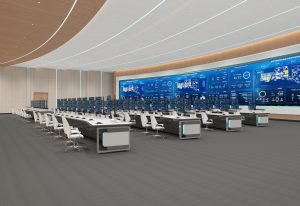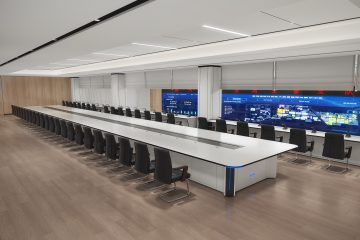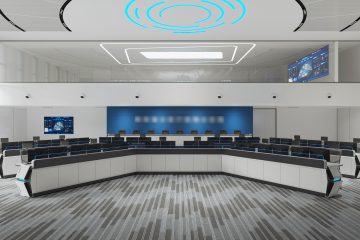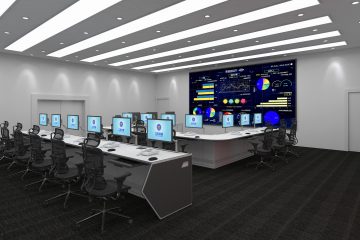In today’s fast-paced and technology-driven world, the importance of efficient and reliable mission-critical operations centers cannot be overstated. These centers serve as the nerve centers for various industries, ensuring seamless operations and swift responses to any anomalies. Central to the functionality of these operations centers are the control room consoles, which play a pivotal role in managing and monitoring essential processes. This article delves into the significance of mission-critical operations centers and how control room consoles contribute to their effectiveness.
Understanding Mission-Critical Operations Centers
Mission-critical operations centers are specialized facilities designed to manage and oversee operations that are vital to the functioning of organizations. These centers are crucial in sectors such as energy, transportation, telecommunications, public safety, and finance, where uninterrupted operations are paramount. The primary objectives of mission-critical operations centers include:
- Continuous Monitoring: Ensuring round-the-clock surveillance of essential systems to detect and respond to any irregularities promptly.
- Real-Time Data Analysis: Analyzing data in real-time to make informed decisions and maintain operational efficiency.
- Crisis Management: Coordinating swift responses to emergencies and mitigating potential risks.
- Operational Coordination: Streamlining communication and coordination among various departments to ensure cohesive operations.
The Role of Control Room Consoles
Control room consoles are the backbone of mission-critical operations centers, providing the necessary infrastructure for operators to perform their tasks efficiently. These consoles are ergonomically designed to facilitate optimal performance and comfort, enabling operators to manage complex systems seamlessly. Key features of advanced control room consoles include:
- Ergonomic Design: Adjustable workstations, monitor mounts, and seating arrangements to reduce operator fatigue and enhance productivity.
- Integrated Technology: High-resolution displays, touchscreen interfaces, and advanced control systems for efficient monitoring and control of operations.
- Scalability: Modular designs that can be customized and expanded to accommodate the evolving needs of operations centers.
- Cable Management: Organized cable management systems to prevent clutter and ensure easy maintenance.
- Durability: Built with high-quality materials to withstand the demands of continuous use in mission-critical environments.
Enhancing Efficiency and Reliability
The synergy between mission-critical operations centers and control room consoles enhances the overall efficiency and reliability of operations. By providing a centralized platform for monitoring and controlling essential systems, these centers enable organizations to achieve several key benefits:
- Improved Decision-Making: Real-time data visualization and analysis allow operators to make informed decisions quickly, minimizing downtime and enhancing operational continuity.
- Increased Situational Awareness: Comprehensive monitoring capabilities ensure that operators are always aware of the status of critical systems, enabling proactive management of potential issues.
- Enhanced Collaboration: Centralized operations centers foster better communication and collaboration among team members, ensuring a coordinated response to any situation.
- Streamlined Operations: Efficient control room consoles facilitate smooth workflow management, reducing the risk of errors and improving overall productivity.
- Risk Mitigation: Rapid detection and response to anomalies help mitigate risks and prevent potential disasters, safeguarding organizational assets and reputation.

The Future of Mission-Critical Operations Centers
As technology continues to evolve, mission-critical operations centers are poised to become even more sophisticated. Emerging technologies such as artificial intelligence, machine learning, and advanced data analytics are set to revolutionize the way these centers operate. Future control room consoles will likely incorporate these technologies to provide even greater levels of efficiency, reliability, and situational awareness.
In conclusion, mission-critical operations centers are indispensable to the smooth functioning of modern industries, and control room consoles are the essential tools that empower operators to manage and monitor critical systems effectively. By investing in advanced control room consoles and leveraging cutting-edge technologies, organizations can enhance their operational capabilities, ensuring that they remain resilient and responsive in the face of any challenges.



0 Comments